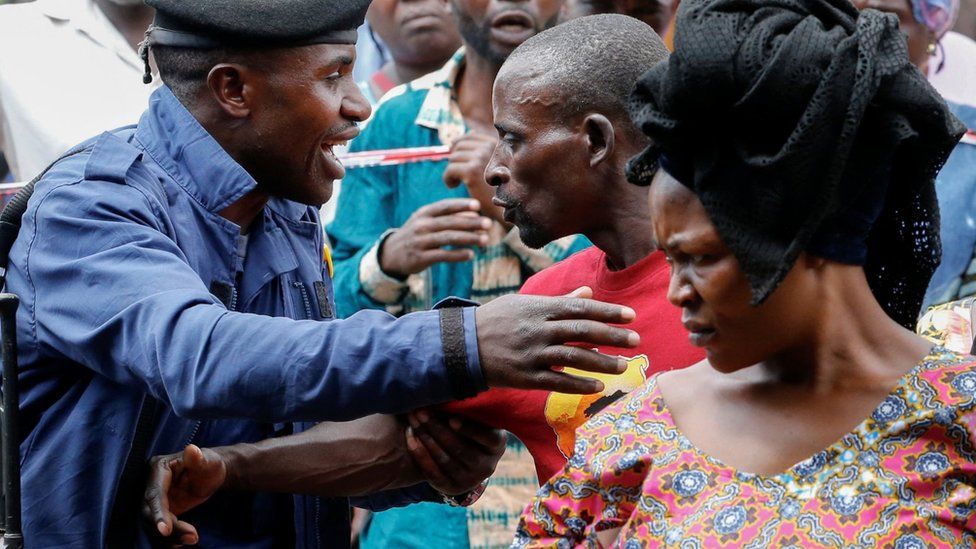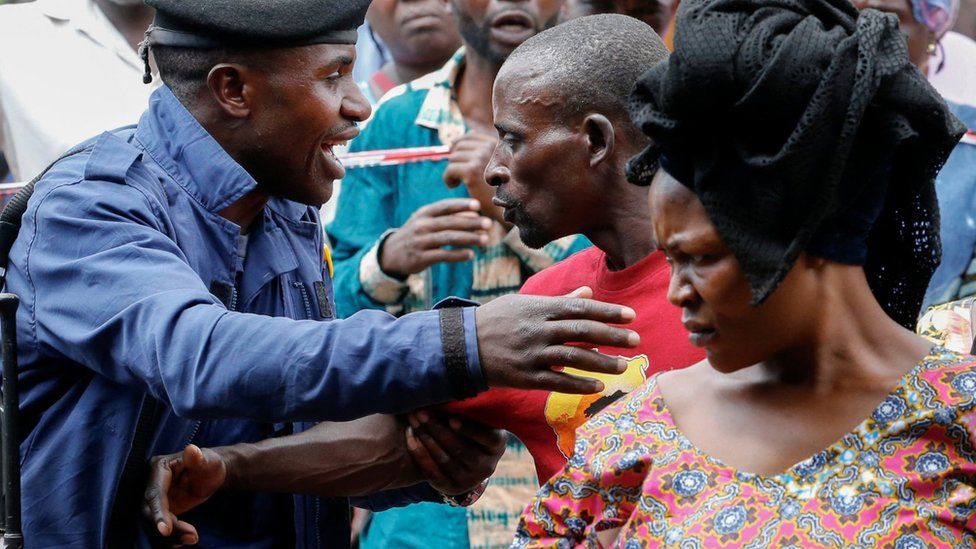 At some polling stations police have struggled to control large crowds of voters
At some polling stations police have struggled to control large crowds of voters
KINSHASA, Dec 21 (NNN-AGENCIES) — Elections in the Democratic Republic of Congo (DRC) have been extended after widespread delays, opposition allegations of fraud, violence, and logistical setbacks.
Voting in the country’s presidential and legislative elections began Wednesday after almost a three-hour delay, as authorities scrambled to finalise preparations in an election facing steep logistical and security challenges.
While polls were scheduled to close at 5pm, hundreds of people were still waiting to vote after that time, as many polling stations had opened late, DRC’s Independent National Electoral Commission (CENI) acknowledged.
The commission said voting will continue on Thursday in polling stations that were unable to open on polling day.
Civil society observers and opposition candidates have sounded the alarm about the delays and other issues, including malfunctioning electronic voting systems and violent attacks.
“It is total chaos,” said presidential candidate Martin Fayulu, runner-up in the disputed 2018 presidential election.
“If all the people don’t vote in all the polling stations indicated by the CENI, we won’t accept these elections,” Fayulu warned after voting in the capital Kinshasa.
Another presidential candidate, Nobel Peace laureate Denis Mukwege, also warned about the chaos at voting stations and condemned what he called “the proliferation of serious dysfunction and irregularities … which confirm our fears of evidently planned electoral fraud.”
We “fear that the results of such a chaotic vote will not reflect the will of the people”, he said.
Another challenger in the race, millionaire businessman and former Governor Moise Katumbi, urged his supporters to monitor the publication of results in each polling station.
“The only results that we will accept are results that must be posted at each polling station. For now, I’ll not judge the organisation of the vote but there are many failures,” he said after voting in the mining town of Lubumbashi.
The election commission has repeatedly rejected the opposition’s allegations of mismanagement and fraud.
Some 44 million people – almost half the population – are expected to vote. But many, including several million displaced by conflict in the vast country’s east, could struggle to cast their ballots. The fighting has prevented 1.5 million people from registering to vote.
In the eastern DRC, people said they were not finding their names on voting lists.
“The voters displayed on lists at the polling station are fewer than those who are lining up. I can’t find my name on the list and this could cause scuffles here because I also want to vote,” said Jules Kambale at a polling station in Goma.
Waiting for polls to open amid the delay, some people grew agitated and began arguing, particularly in the capital.
Both outside observers and locals have warned of challenges that could affect the credibility of the vote in one of Africa’s largest nations and one whose mineral resources are increasingly crucial to the global economy.
On the eve of the vote, some polling officers in Kinshasa told journalists that they were still waiting for materials.
A key concern is that ink on voting cards has smudged, making many illegible. That means people could be turned away from polling stations. In addition, the voter registration list has not been properly audited.
“The organisation of the elections raises lots of doubt regarding the credibility, the transparency and the reliability of the results,” said Bienvenu Matumo, a member of LUCHA, a local rights group.
A candidate needs a majority of votes in the first round to win.
President Felix Tshisekedi is seeking his second and final five-year term, running against about 20 other candidates. His main rival appeared to be Katumbi.
But the opposition has remained fractured, making Tshisekedi the likely favourite.
The son of a late, popular opposition figure, he has spent much of his presidency trying to consolidate power over state institutions and working to overcome a crisis of legitimacy after a contested election five years ago.
Some voters did not want to disclose who they were backing, but Kinshasa is a Tshisekedi stronghold.
“He’s someone who’s done a lot of things for the country … he’s fought for democracy,” said business owner Joseph Tshibadi. Even though Tshisekedi has not succeeded in quelling violence in the east, Tshibadi is willing to give him more time.
“The beginning is always hard,” he said.
After waiting nearly three and a half hours, Tshibadi was the first person to vote at a school in the capital. He said voting was easy. — NNN-AGENCIES






